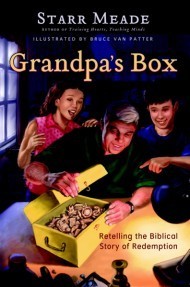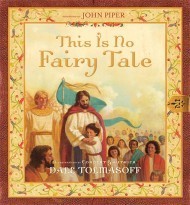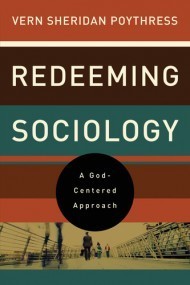Justin Taylor's Blog, page 323
June 6, 2011
Type ____ into Google and Look at the Number of Hits!
I admit that I sometimes like a good rant.
Here's Andy Le Peau of IVP on "Why should writers and speakers stop using Google as a supposed source of statistical authority": (1) It's lazy; (2) It seems authoritative but it's not; (3) It replaces actual thinking with pointless numbers.
An Interview on Preaching to Yourself
I enjoyed this chat with Joe Thorn about his new book, Note to Self: The Discipline of Preaching to Yourself:
Contending for the Faith and Communing with God
Two quotes from John Owen's preface to Vindiciae Evangelicae ["Mystery of the Gospel Vindicated"] (1655), Works vol. 12:
"When the heart is cast indeed into the mould of the doctrine that the mind embraceth,
—when the evidence and necessity of the truth abides in us,
—when not the sense of the words only is in our heads, but the sense of the thing abides in our hearts
—when we have communion with God in the doctrine we contend for
—then shall we be garrisoned by the grace of God against all the assaults of men."
"Let us . . . not think that we are anything the better for our conviction of the truths of the great doctrines of the gospel, for which we contend with these men, unless we find the power of the truths abiding in our own hearts, and have a continual experience of their necessity and excellency in our standing before God and our communion with him."
HT: Dane Ortlund
Piper, Carson, and Keller on Sustaining the Covenant of Marital Love
"What sustains the marital bond and affections over the long haul? Three men with a combined 116 years of marriage reflect on what they've learned from God's Word and others along with their experience.
"Don Carson, Tim Keller, and John Piper offer insight on falling in love again and again and the ground of covenant in which the flower of love grows. In marriage, man and woman change but their promise does not, sustained by the God who enacted his covenant between Christ and the church."
Keller's marriage series can be purchased here.
Piper's book is This Momentary Marriage: A Parable of Permanence.
June 2, 2011
Grandpa's Box: Retelling the Biblical Story of Redemption (Now 50% Off)
 I've begun reading Grandpa's Box by Starr Meade (author of several very fine books for children) with our two oldest kids (ages seven and six), and I'm enjoying it as much as they are. It's one of those books that has tended to fly "under the radar," but deserves to be much better known.
I've begun reading Grandpa's Box by Starr Meade (author of several very fine books for children) with our two oldest kids (ages seven and six), and I'm enjoying it as much as they are. It's one of those books that has tended to fly "under the radar," but deserves to be much better known.
It's a creative presentation of the biblical storyline, as a grandpa uses objects in an old box to retell the stories. I think parents will be surprised at the nuanced biblical theology at play here. I am being instructed as I read.
WTS Books has offered to run a 50% off sale, ending on June 14.
You can access online the table of contents, the first chapter, and a study guide.
Here is P&R's description:
It was a wooden box, simply made. "I guess you could call it my war chest," Grandpa said. As the children peered into the box, they saw many small figures—animals, people, and objects of all kinds. A number of them were carved from wood."
Learn along with Marc and Amy as Grandpa uses his special box of wooden carvings to illustrate the wonderful stories of the Bible to children. From Genesis to Revelation, Grandpa shows how the stories of the Bible fit as episodes in the one story of God's redemption of His people. Children will come away with a deeper understanding of God's plan of redemption told throughout all of Scripture. Even those children who already know the stories of the Bible will learn more about God and his plan for saving His people.
Sermon Transcribers
To my knowledge there are not a lot of sermon transcription services currently available through the web. Some folks from our church have recently started one, and I'm happy to recommend their work. They have a love of God's word and a passion for accuracy and excellence, and they can have the transcriptions back to you in a few days. I think this is a helpful service if you're pastor doesn't write out a full manuscript and yet you want sermons posted online to be read. It can also be helpful for those who want to take a sermon and develop it into an article, book manuscript, etc.
A couple of deals:
If you mention my name, your first transcript is free (so you can "test drive" it).
If you sign up for a six-month contract, you get 10% off.
They offer various packages and levels of formatting. If you want to see a sample basic transcript, here's a PDF of a sermon I gave on Sanctity of Life Sunday.
Again, I'm happy to recommend their work.
June 1, 2011
A Parody of Over-Interpreting the Bible
A classic illustration from Moisés Silva, which had a significant impression on me when I first read it in the late '90s:
It is approximately the year 2790. The most powerful nation on earth occupies a large territory in Central Africa, and its citizens speak Swahili. The United States and other English-speaking countries have long ceased to exist, and much of the literature prior to 2012 (the year of the Great Conflagration) is not extant. Some archaeologists digging in the western regions of North America discover a short but well-preserved text that can confidently be dated to the last quarter of the twentieth century. It reads thus:
Marilyn, tired of her glamorous image, embarked on a new project. She would now cultivate her mind, sharpen her verbal skills, pay attention to standards of etiquette. Most important of all, she would devote herself to charitable causes. Accordingly, she offered her services at the local hospital, which needed volunteers to cheer up terminal patients, many of whom had been in considerable pain for a long time. The weeks flew by. One day she was sitting at the cafeteria when her supervisor approached her and said, "I didn't see you yesterday. What were you doing?" "I painted my apartment; it was my day off," she responded.
The archaeologists know just enough English to realize that this fragment is a major literary find that deserves closer inspection, so they rush the piece to one of the finest philologists in their home country. This scholar dedicates his next sabbatical to a thorough study of the text and decides to publish an exegetical commentary on it, as follows:
We are unable to determine whether this text is an excerpt from a novel or from a historical biography. Almost surely, however, it was produced in a religious context, as is evident from the use of such words as devoted, offered, charitable. In any case, this passage illustrates the literary power of twentieth-century English, a language full of metaphors. The verb embarked calls to mind an ocean liner leaving for an adventuresome cruise, while cultivate possibly alerts the reader to Marilyn's botanical interests. In those days North Americans compared time to a bird—probably the eagle—that flies.
The author of this piece, moreover, makes clever use of word associations. For example, the term glamorous is etymologically related to grammar, a concept no doubt reflected in the comment about Marilyn's "verbal skills." Consider also the subtleties implied by the statement that "her supervisor approached her." The verb approach has a rich usage. It my indicate similar appearance or condition (this painting approaches the quality of a Picasso); it may have a sexual innuendo (the rapist approached his victim); it may reflect subservience (he approached his boss for a raise). The cognate noun can be used in contexts of engineering (e.g. access to a bridge), sports (of a golf stroke following the drive from the tee), and even war (a trench that protects troops besieging a fortress).
Society in the twentieth century is greatly illuminated by this text. The word patient (from patience, meaning "endurance") indicates that sick people then underwent a great deal of suffering: they endured not only the affliction of their physical illness, but also the mediocre skills of their medical doctors, and even (to judge from other contemporary documents) the burden of increasing financial costs.
A few syntactical notes may be of interest to language students. The preposition of had different uses: casual (tired of), superlative (most important of all), and partitive (many of whom). The simple past tense had several aoristic functions: embarked clearly implies determination, while offered suggests Marilyn's once-for-all, definitive intention. Quite noticeable is the tense variation at the end of the text. The supervisor in his question uses the imperfect tense, "were doing," perhaps suggesting monotony, slowness, or even laziness. Offended, Marilyn retorts with a punctiliar and emphatic aorist, "I painted."
Readers of Bible commentaries, as well as listeners of sermons, will recognize that my caricature is only mildly outrageous. . . .
Silva goes on to point out the obvious: not only does is the exegesis "overinterpretation," but "it contributes virtually nothing to the reader's understanding of what the passage actually says!"
He goes on:
Preachers who make appeals to "the original" may in some cases help their readers obtain a better insight into Scripture. More often than not, however such appeals serve one of two functions: (1) they merely furnish illustrations to heighten interest to that hearers think they have a better understanding of the passage (cf. the comment on embark above); (2) they provide the occasion to make a point that has little do to with the passage (cf. the comment on patient).
The parody is found in Silva's excellent book, God, Language, and Scripture: Reading the Bible in the Light of General Linguistics, reprinted in the volume Foundations of Contemporary Interpretation (Zondervan, 1990), pp. 199-201.
This book is profitably read in conjunction with D. A. Carson's Exegetical Fallacies (2d ed., Baker Academic, 1996).
HT: Rodney Decker
This Is No Fairy Tale
 One of our kids has begun asking some higher-level apologetics/epistemology questions (How do we know there's not more than one god? How do we know the biblical authors didn't make things up?).
One of our kids has begun asking some higher-level apologetics/epistemology questions (How do we know there's not more than one god? How do we know the biblical authors didn't make things up?).
We've found this simple picture book by Dale Tolmasoff to be a helpful resource: This Is No Fairy Tale (Crossway, 2005).
Here is John Piper's foreword:
The story you are about to read is unlike any other story in the world. It's a story full of surprises. It's better than any fairy tale you have ever heard. Jesus broke all the rules for fairy-tale kings who try to look real but really aren't. He was poor. He worked with His hands. He played with children. He served the needy. His friends deserted Him. And He was killed. But He rose from the dead and is alive today. Nobody ever spoke like Jesus. Nobody ever lived like Jesus. Nobody ever died like Jesus. Not even in fairy tales. And nobody ever rose from the dead like Jesus.
This is a wonderful story. But what makes this story so important is that it is true. It is not a fairy tale. It really happened. You can believe it and build your whole life on it. Come, let's read it together.
(And just to forestall any objections: Yes, I strongly believe that we do need fairy tales!)
Redeeming Sociology
 John Starke has a helpful interview with Vern Poythress about his new book, Redeeming Sociology: A God-Centered Approach (Crossway, 2011).
John Starke has a helpful interview with Vern Poythress about his new book, Redeeming Sociology: A God-Centered Approach (Crossway, 2011).
This is part of an ambitious project of seeking a rigorously God-centered approach to various disciplines. (He has already done this with hermeneutics, science, and language).
You can read some sample material from the book here.
Here are some endorsements for the book:
"Using the triadic analytical technique derived from the truth of the Trinity, Poythress continues his quest for an undistorted, biblical understanding of the sciences, this time zeroing in on linguistics and sociology. This is a work of first-rate thinking. Demanding yet enriching, this book is a major contribution to the modern reformation and its intellectual renewal."
—J. I. Packer, Board of Governors' Professor of Theology, Regent College; author, Knowing God
"It is fairly common today for preachers and theologians to speak of relationships as crucial to the gospel, and to invoke the divine Trinity as the ultimate model therein, but this point has rarely been presented in theological depth. Poythress takes up that task, showing in great detail the biblical depth of this picture. He explains that human relationships make no sense apart from God's nature, creation, and providence. Indeed, this book presents a powerful argument against the exclusion of God from sociology and psychology. And it extends the argument of his recent books (on interpretation, science, and language) that the God of Scripture is the foundation for everything human."
—John M. Frame, J. D. Trimble Chair of Systematic Theology and Philosophy, Reformed Theological Seminary, Orlando
"In the spirit of Abraham Kuyper, Vern Poythress has given us a valuable guide to thinking about godly relationships in our secular world. He develops a biblical understanding of how the distortions of sin have fractured our relationships with God and his people. I commend Poythress for his insightful thinking in this book, which joins the ranks of his similar contributions on science and literature."
—J. Lanier Burns, Research Professor of Theological Studies, Senior Professor of Systematic Theology, Dallas Theological Seminary
"Vern Poythress has done thinking Christians a great service by engaging in rigorous theological reflection on relationships—that all-important facet of human existence that we are inescapably immersed in, are shaped by, and yet often take for granted. Church leaders will benefit from this fine book."
—D. Michael Lindsay, President, Gordon College; author, Faith in the Halls of Power
Justin Taylor's Blog
- Justin Taylor's profile
- 44 followers



